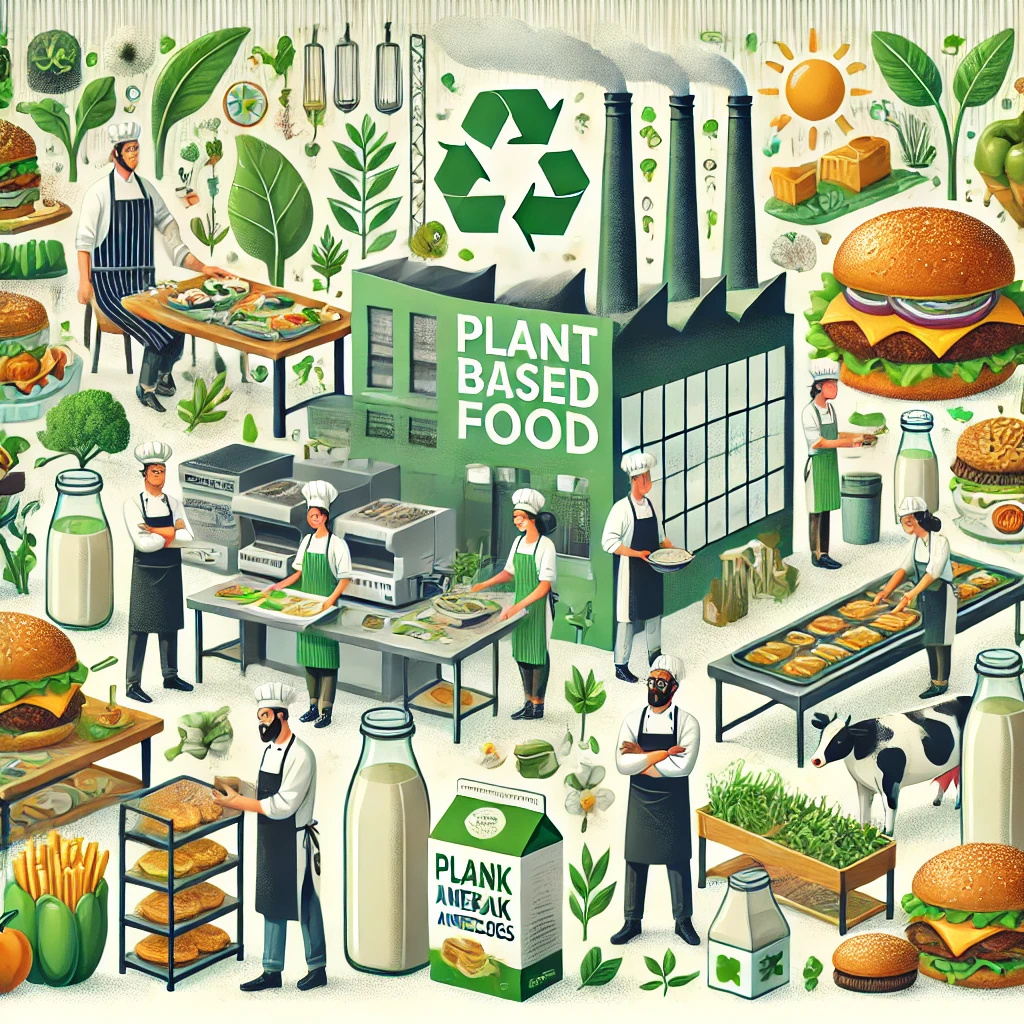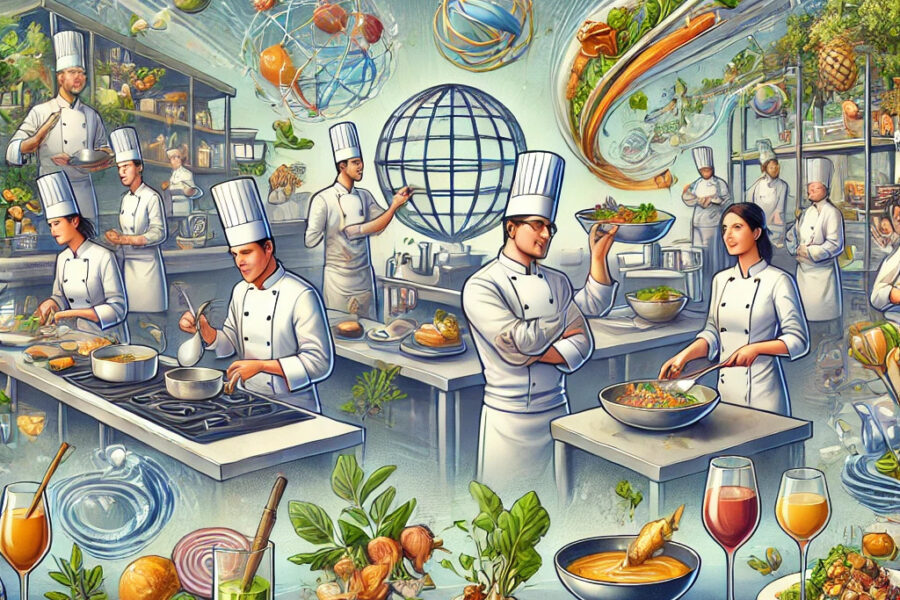Diverse Plant-Based Food Manufacturers: Pioneering a Sustainable Future
The rise of plant-based diets has transformed the global food landscape, and at the forefront of this shift are diverse plant-based food manufacturers. These companies are not only catering to the growing demand for meat and dairy alternatives but are also addressing critical issues like sustainability, health, and ethical eating. As plant-based products continue to gain traction, diverse manufacturers are leading the way with innovation, inclusivity, and a commitment to making the world a better place. Here’s an in-depth look at some key players and trends shaping the industry in 2024 and beyond.
Why Plant-Based is the Future
Plant-based eating is no longer a niche movement; it’s a global phenomenon. Several factors are driving this change:
- Environmental Sustainability: Reducing the environmental impact of food production is a key motivator for many consumers. Plant-based foods require fewer resources and produce less greenhouse gas emissions compared to animal agriculture.
- Health Benefits: Plant-based diets are linked to lower risks of chronic diseases, better heart health, and improved overall well-being.
- Ethical Concerns: Many consumers are choosing plant-based options to align with their values of animal welfare and social responsibility.
Diverse Leaders in Plant-Based Manufacturing
1. Beyond Meat: The Pioneer
Beyond Meat has become synonymous with plant-based innovation. Known for their flagship product, the Beyond Burger, the company focuses on creating meat alternatives that mimic the taste and texture of real meat. In 2024, Beyond Meat expanded its product line to include plant-based steak strips and pork substitutes, catering to a broader audience.
2. Oatly: The Dairy-Free Revolution
Oatly is a leading player in the dairy alternative market, specializing in oat-based products. Their commitment to sustainability extends beyond their ingredients; Oatly uses eco-friendly packaging and promotes transparency with a carbon footprint label on every product.
3. Tofurky: The Ethical Innovator
As one of the first companies to offer plant-based turkey alternatives, Tofurky has been a trailblazer in the industry. Their 2024 initiatives include partnering with local farms to source organic ingredients and launching a campaign to reduce food waste.
4. Impossible Foods: The Tech-Driven Visionary
Impossible Foods leverages cutting-edge technology to create plant-based products that rival their animal-based counterparts. Their use of heme, a molecule found in plants and animals, gives their products a meat-like flavor and appearance. In 2025, Impossible Foods plans to expand into seafood alternatives, further diversifying their offerings.
5. Miyoko’s Creamery: The Artisan Approach
Miyoko’s Creamery specializes in artisanal plant-based cheeses and butter. Their products are made from organic cashews and other high-quality ingredients, setting a new standard for dairy alternatives. Miyoko’s emphasis on craftsmanship and flavor has earned them a loyal following.
Global Trends in Plant-Based Food Manufacturing
1. Regional Flavors and Ingredients
Plant-based manufacturers are incorporating regional flavors to appeal to diverse palates. For instance:
- Asian-Inspired Options: Products like jackfruit dumplings and tofu-based ramen cater to the popularity of Asian cuisines.
- African Superfoods: Ingredients like moringa and fonio are finding their way into plant-based snacks and beverages.
- Latin American Staples: Companies are creating plant-based versions of empanadas, tamales, and other traditional dishes.
2. Clean Label Products
Consumers are increasingly seeking products with simple, recognizable ingredients. Manufacturers are responding by reducing additives and emphasizing whole, minimally processed foods.
3. Functional Foods
Functional foods combine nutrition with additional health benefits. Examples include:
- Protein-Enriched Products: High-protein plant-based yogurts and shakes.
- Gut-Friendly Alternatives: Probiotic-rich plant-based cheeses and drinks.
- Omega-3 Fortified Options: Plant-based seafood enriched with algae-derived omega-3s.
4. Technology and Innovation
Technology is playing a pivotal role in advancing the plant-based industry:
- Precision Fermentation: This technique is used to create dairy proteins like casein and whey without animals.
- 3D Food Printing: Companies are experimenting with 3D printing to produce intricate plant-based meats and seafood.
- AI-Powered Product Development: Artificial intelligence helps manufacturers optimize flavors, textures, and nutritional profiles.
Challenges Facing the Industry
While the plant-based market is booming, manufacturers face several challenges:
- Cost: Producing plant-based foods at scale can be expensive, leading to higher prices for consumers.
- Taste and Texture: Despite advancements, replicating the taste and texture of animal products remains a challenge.
- Consumer Education: Many people are still unfamiliar with plant-based options, requiring manufacturers to invest in marketing and awareness campaigns.
The Role of Diversity in Plant-Based Manufacturing
Diversity is not just about the products; it’s also about the people behind them. Plant-based manufacturers are prioritizing inclusivity in several ways:
- Workforce Diversity: Hiring individuals from various backgrounds fosters innovation and reflects the diverse communities they serve.
- Cultural Representation: Highlighting traditional plant-based ingredients and recipes from around the world.
- Community Outreach: Partnering with local organizations to promote accessibility and education around plant-based eating.
Sustainability in Focus
Sustainability is a core value for plant-based manufacturers. Key practices include:
- Sourcing Responsibly: Using organic, non-GMO, and locally sourced ingredients.
- Reducing Packaging Waste: Adopting biodegradable and recyclable packaging materials.
- Minimizing Carbon Footprint: Investing in renewable energy and efficient production processes.
The Future of Plant-Based Food Manufacturing
As the industry continues to grow, several trends are set to shape its future:
- Affordable Options: Efforts to lower production costs will make plant-based foods accessible to a wider audience.
- Expansion into New Categories: From plant-based eggs to seafood, the industry will continue to diversify its offerings.
- Collaboration and Innovation: Partnerships between manufacturers, scientists, and chefs will drive innovation and improve product quality.
Diverse plant-based food manufacturers are redefining the food industry with their innovative products and sustainable practices. By catering to a wide range of tastes, cultures, and dietary needs, these companies are making plant-based eating more inclusive and appealing than ever. As we look to the future, their efforts will play a crucial role in shaping a healthier, more sustainable world for everyone.


 More Feature News
More Feature News








